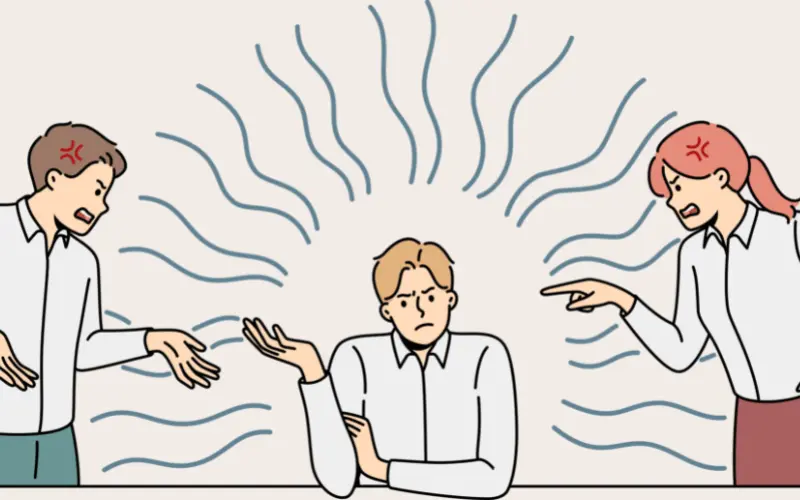Deja Vu is the impression of having previously experienced a similar circumstance in some indeterminate past. It is a swift and striking sensation. You come across the sensation that you did this exact same thing and can’t shake it. Meanwhile, you’re well aware that this cannot possibly represent reality since you have never gone to this location or met these individuals at any point in your life before.
Deja Vu happens most often between the ages of 15 and 25 years old, and the likelihood of experiencing it diminishes with age. People with higher levels of education, who travel, who recall their dreams, and who have liberal political values are more vulnerable to the virus than others. Deja Vu is more common among pupils who are fatigued or stressed. According to research, Deja Vu is also more common in the evenings and on weekends.
What causes Deja Vu to occur?
Deja Vu may also be an indication of a neurological condition. Patients suffering from temporal lobe epilepsy often describe the same experience with precisely the same characteristics.
Before undergoing surgery for temporal epilepsy, scientists took recordings of the brain to get insight into the mechanics of Deja Vu. A portion of the temporal cortex is located right below the hippocampus in the human brain. During a seizure, discharges from the temporal cortex stimulate two different circuits in the hippocampus simultaneously.
One circuit is responsible for monitoring our continual experience of the outside environment. The other recovers recollections from the past. The simultaneous activity of the two brain processes compresses the amount of time between them, leading us to “remember the present” or “experience Deja Vu.”
Researchers cannot readily investigate Deja Vu, partly because it occurs without warning and often in persons who do not have underlying health problems that may be contributing factors. Furthermore, Deja Vu events are notorious for ending almost as fast as they began. If you are unfamiliar with the phenomenon of Deja Vu, the experience may be so brief that you may not even understand what has just occurred. You could feel a little uneasy at first but shortly forget about it.
Theories related to Deja Vu
Split Perception Theory
According to the hypothesis of split perception, Deja Vu occurs when you see something twice in a short period. When you see something for the first time, you could glimpse it out of the corner of your eye or while preoccupied.

Even with the minimal amount of information you get from a quick, incomplete gaze, your brain may begin to construct a memory of what it has seen and experienced. As a result, you may be consuming more calories than you think. Whether your initial glimpse of anything, such as a view from a hillside, did or did not need your whole concentration, you may assume you are seeing it for the first time.
Put another way, since you didn’t give the experience your entire attention the first time it entered your view, it seems to you as if it were two separate experiences. However, it is only a continuation of one’s view of the same event.
Minor Brain Abnormality
According to another idea, Deja Vu occurs when your brain “glitches,” so to speak, and suffers a transient electrical failure – similar to what occurs during an epileptic episode. In other words, it may occur as a result of a kind of confusion when the parts of your brain that monitor current events and the parts of your brain that remember memories are both engaged at the same time.
In most cases, this form of brain malfunction is not a reason for worry until it occurs regularly. Another form of brain dysfunction, according to some specialists, may be responsible for Deja Vu. When your brain absorbs information, it normally follows a predetermined course from short-term memory storage to long-term memory storage, known as the information processing pathway.
As a result, short-term memories may act as a shortcut to long-term memory storage at times. If you’re not careful, it might give you the impression that you recall a long-past memory rather than something that occurred only moments ago.
Irregularity in recalling a memory
Many specialists feel that Deja Vu has something to do with how memories are processed and recalled. Deja Vu might occur due to an occurrence that seems to be similar to something you’ve previously experienced but cannot recall. Perhaps it occurred during your youth, or you cannot recollect it for some other reason.
This process of subliminal remembering results in a strange sense of familiarity that is hard to explain. If you could recollect a comparable memory, you would be able to connect the two and would most likely not feel Deja Vu at all.
You may have had a similar experience. Many individuals have said that a strong belief accompanies their Deja Vu experiences that they know exactly what will happen next. However, according to Cleary’s study, even if you are confident in your ability to foresee what you will see or experience, you are not always correct.
Further investigation may be able to provide a better explanation for this prediction occurrence and Deja Vu in general. In this notion, individuals are more likely to experience sensations of nostalgia when they come across a situation that seems similar to anything they’ve seen previously in their lives.
Is Deja Vu harmful?
Deja Vu is a common occurrence that has no major underlying cause, yet it may occur right before or during epilepsy episodes. Many persons who have seizures and their loved ones become aware of what is occurring rather fast.
You will not lose consciousness, and you may be completely aware of your surroundings. However, since you may not be able to act or reply, other people may believe you are zoning out or looking out into the distance, lost in contemplation, due to your behavior. Therefore, it is important that you understand this condition and act accordingly. Spread awareness of this condition among your friends and family. It will help a great deal when more people know about it.











